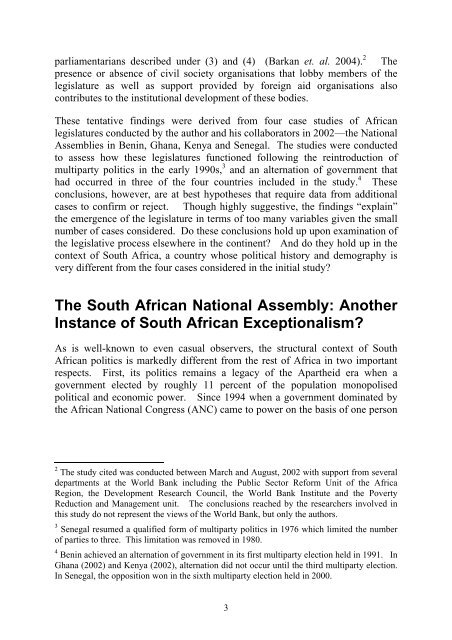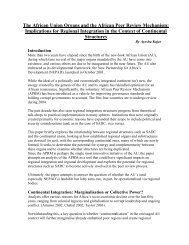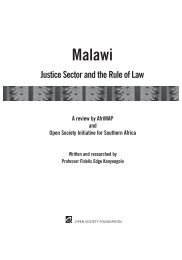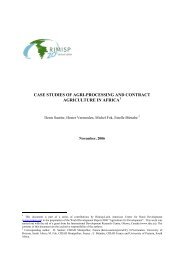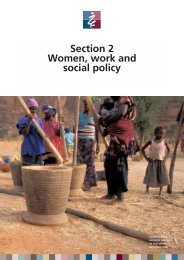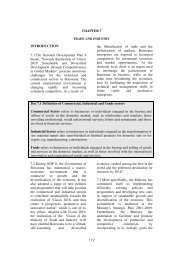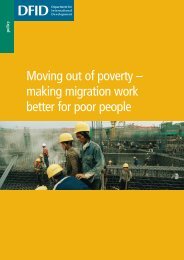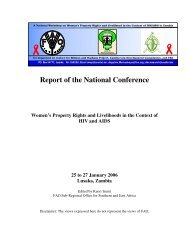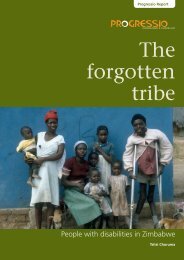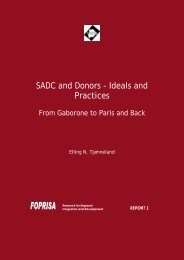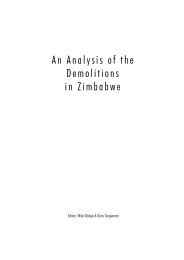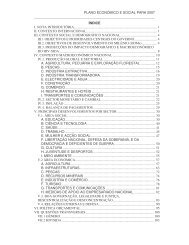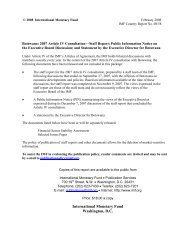400Kb ~ 2 min (33 pages) - SARPN
400Kb ~ 2 min (33 pages) - SARPN
400Kb ~ 2 min (33 pages) - SARPN
You also want an ePaper? Increase the reach of your titles
YUMPU automatically turns print PDFs into web optimized ePapers that Google loves.
parliamentarians described under (3) and (4) (Barkan et. al. 2004). 2 Thepresence or absence of civil society organisations that lobby members of thelegislature as well as support provided by foreign aid organisations alsocontributes to the institutional development of these bodies.These tentative findings were derived from four case studies of Africanlegislatures conducted by the author and his collaborators in 2002—the NationalAssemblies in Benin, Ghana, Kenya and Senegal. The studies were conductedto assess how these legislatures functioned following the reintroduction ofmultiparty politics in the early 1990s, 3 and an alternation of government thathad occurred in three of the four countries included in the study. 4 Theseconclusions, however, are at best hypotheses that require data from additionalcases to confirm or reject. Though highly suggestive, the findings “explain”the emergence of the legislature in terms of too many variables given the smallnumber of cases considered. Do these conclusions hold up upon exa<strong>min</strong>ation ofthe legislative process elsewhere in the continent? And do they hold up in thecontext of South Africa, a country whose political history and demography isvery different from the four cases considered in the initial study?The South African National Assembly: AnotherInstance of South African Exceptionalism?As is well-known to even casual observers, the structural context of SouthAfrican politics is markedly different from the rest of Africa in two importantrespects. First, its politics remains a legacy of the Apartheid era when agovernment elected by roughly 11 percent of the population monopolisedpolitical and economic power. Since 1994 when a government do<strong>min</strong>ated bythe African National Congress (ANC) came to power on the basis of one person2 The study cited was conducted between March and August, 2002 with support from severaldepartments at the World Bank including the Public Sector Reform Unit of the AfricaRegion, the Development Research Council, the World Bank Institute and the PovertyReduction and Management unit. The conclusions reached by the researchers involved inthis study do not represent the views of the World Bank, but only the authors.3 Senegal resumed a qualified form of multiparty politics in 1976 which limited the numberof parties to three. This limitation was removed in 1980.4 Benin achieved an alternation of government in its first multiparty election held in 1991. InGhana (2002) and Kenya (2002), alternation did not occur until the third multiparty election.In Senegal, the opposition won in the sixth multiparty election held in 2000.3


